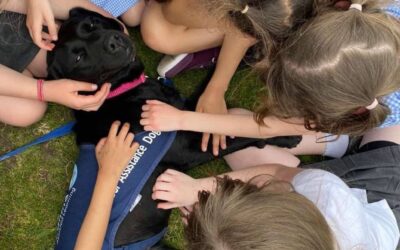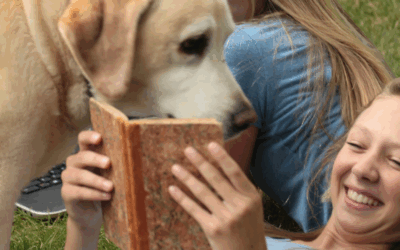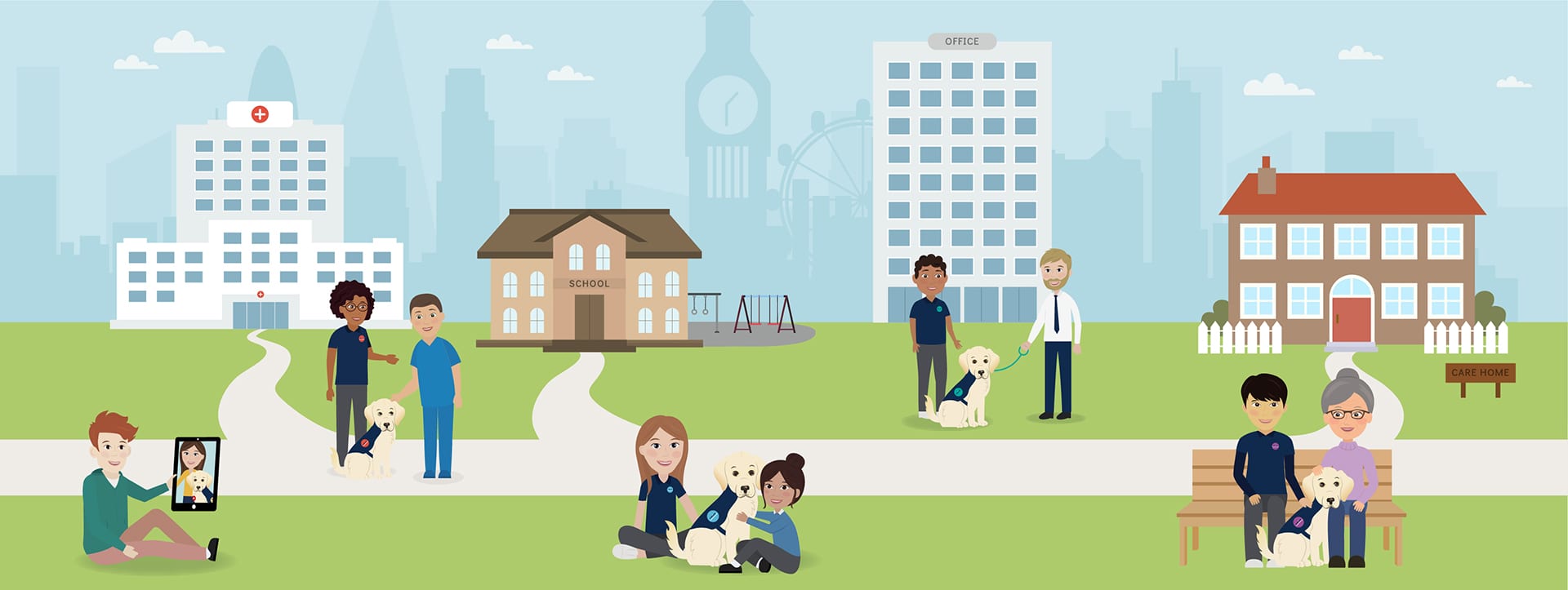
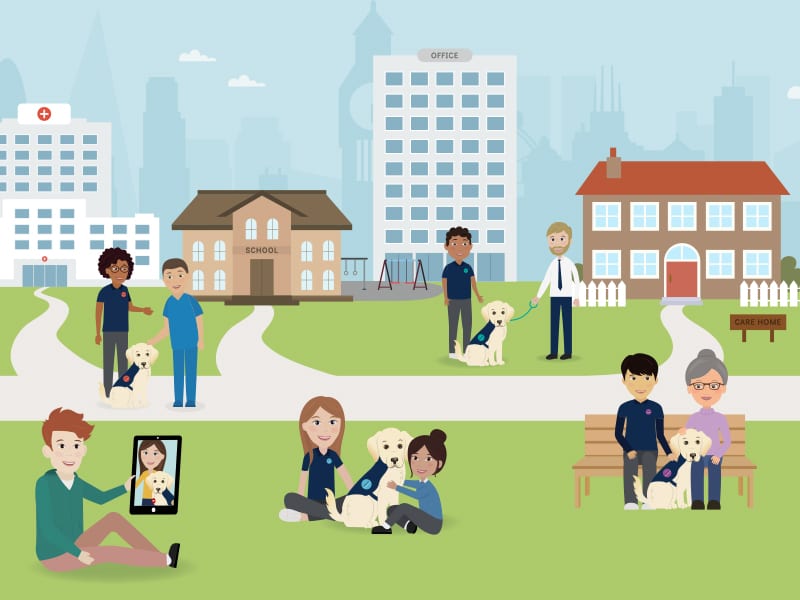
We offer a confidential and supportive environment with our team of experienced consultants and specially trained dogs. Typically these can be one-to-one emotional regulation or talking therapy sessions in a range of areas such as depression, anxiety, eating disorders, self-harm, coping with change, trauma, self-regulation and bereavement. They can also be, however, just taking time out from a busy day to help relieve daily stresses and to stop and pause for a few moments in safe and calm surroundings.
Our heritage brand – Canine Assisted Learning – lies in working with children of all ages and we are at the forefront of academic and therapeutic interventions in schools supporting learning and emotional regulation. We have worked with many children and schools across the UK over the past five years, supporting their emotional wellbeing with a focus on positive mental health.
In 2019, we launched our services in the workplace to offer canine assisted intervention sessions to employees in businesses. It is well documented how our mental health can suffer – often in silence – in the workplace and the impact it can have on productivity, motivation and attitude. We are now successfully working with a number of businesses offering regular one-to-one sessions for employees to encourage them to focus on their mental health and emotional wellbeing.
Our specialist interventions have attained outstanding results in all areas of work. We pride ourselves on the professional delivery and quality of service we offer. And we continue to champion with passion the work we do in the field of mental health and emotional wellbeing
Animal-Assisted Interventions (AAI) involve the use of specifically chosen animals in a range of activities or interactions with people. These interventions are designed to meet particular goals as part of individualised planning. Progress is monitored and reviewed.
For example, to improve a pupil’s literacy skills our team liaises with the child’s teacher to measure the young person’s reading age before working with them on a 1:1 basis, targeting their specific difficulties and making the most of our dog’s unique abilities. We then evaluate the progress at regular intervals, usually each half-term. We have had excellent results here, with pupils who previously refused to read, increasing two reading-ages in just a single half term.
Animal-Assisted Activities (AAA) do not have specific objectives for individuals. Instead they provide all-round improvements that positively affect social, emotional and physical well-being and raise the general quality of life of participants.
The History of Animal-Assisted Therapy
The earliest documented studies into AAT took place in 18th century England when animals were used as a socialisation medium for mentally ill patients, “awakening the social and benevolent feelings” of the inmates. The animals were recognised as non-judgmental, calming influences that helped to reduce stress and anxiety.
Sigmund Freud believed that dogs had a ‘special sense’ that allows them to judge a person’s character accurately—his dog attended all of his therapy sessions. Freud believed that the animal’s presence had a calming influence on all of his patients, especially the children. Similarly, in the early 1960s, Dr. Boris Levinson reported a new step forward in animal-assisted therapy when he found that withdrawn and uncommunicative children would interact more encouragingly whenever he brought his dog, Jingles, to their therapy sessions.
The Human-Animal Bond
The Human-Animal bond refers to the strong positive interaction that exists between humans and animals.
The positive impact of this bond is not only considerable but also backed up by scientific data, case studies and hard research, all validating the therapeutic effects of human-animal relationships. These benefits can be emotional, psychological and physical. This unique bond can help to:
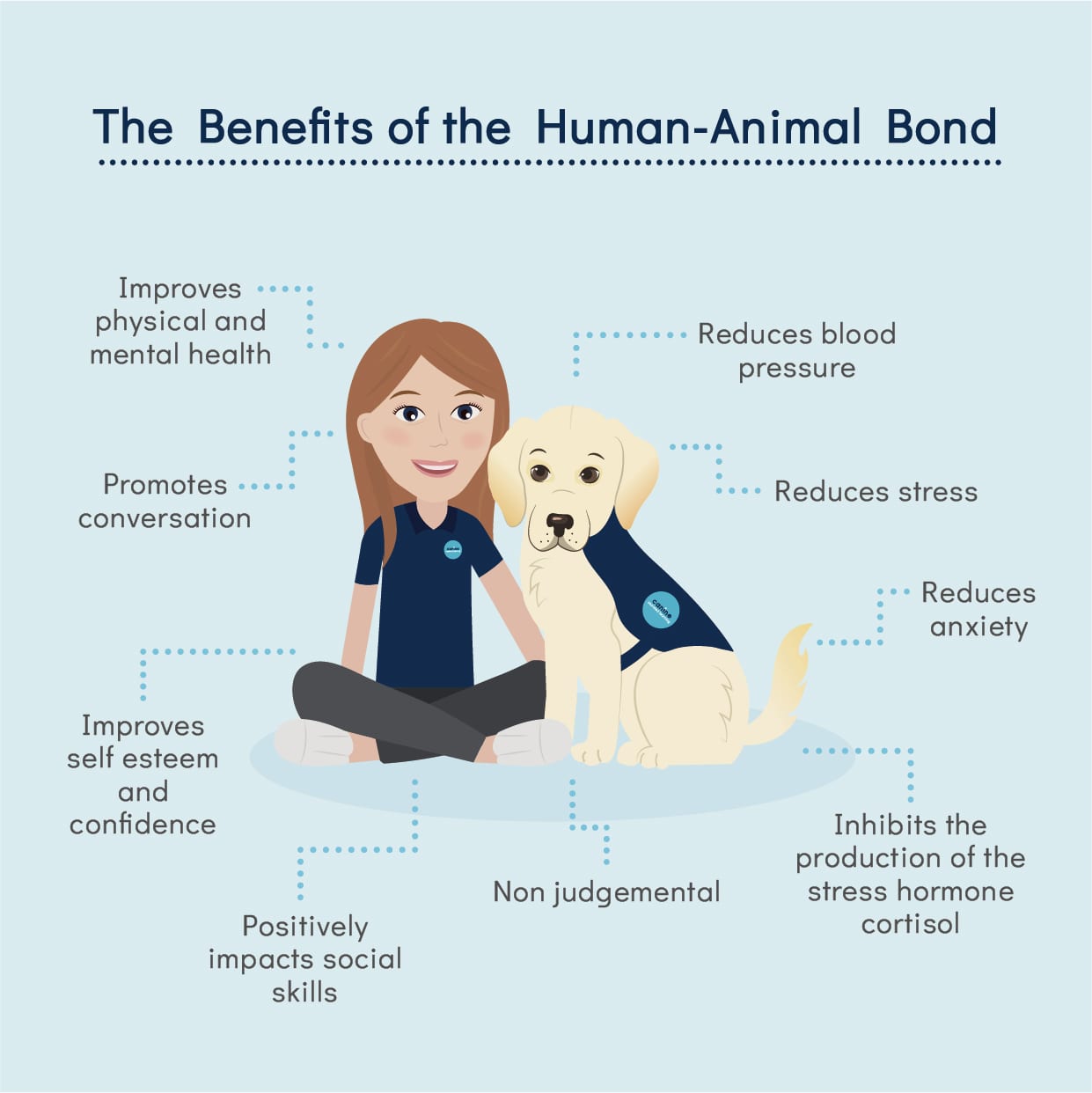

Latest blogs
How How Our School Dogs Are Strengthening School Communities for Mental Health Awareness Week 2025
This Mental Health Awareness Week, we’re celebrating more than just the wellbeing benefits our school dogs bring—we’re shining a light on their growing role in strengthening school communities across the UK With this year’s theme, “The Importance of Community,” we’ve...
Paws for Thought: How School Dogs Are Helping Students Tackle Exam Stress
As exam season rolls in, so do the waves of stress, anxiety, and pressure for students. The intensity of revision, coupled with the looming weight of performance expectations, can leave many feeling overwhelmed. But across the UK and beyond, a unique and heartwarming...
The Importance of Transparency and Training: Why Showcasing Your School Dog Matters
The Importance of Transparency and Training: Why Showcasing Your School Dog Matters Featuring Calthorpe School and their CAL-Affiliate and Practitioner School Dogs As the benefits of school dogs in education settings become increasingly recognised, so too does the...

